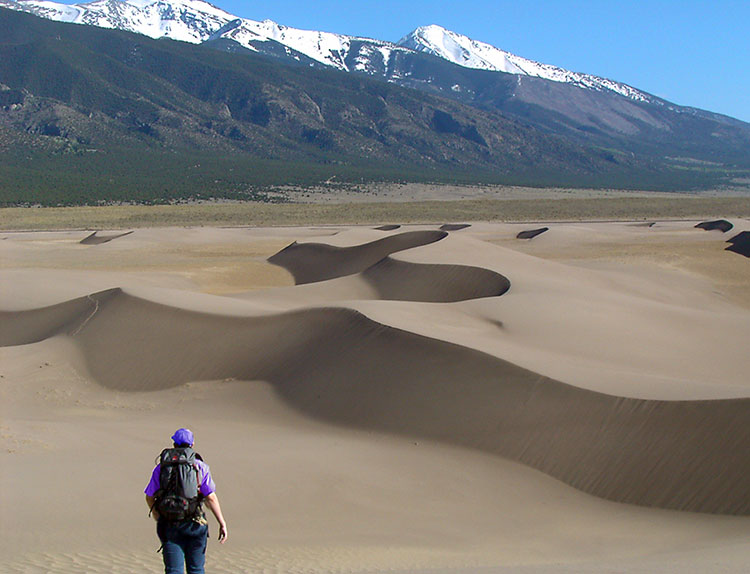
Paul Hanson, associate director of UNL's School of Natural Resources, is offering students the chance to venture outside the classroom for a unique learning opportunity.
"This course is a field tour of natural environments of the western portion of the southern Great Plains and the southern Rocky Mountains of Colorado and New Mexico," Hanson said. "This field tour was designed to show students some similarities and differences between Nebraska's landscape and that of regions further south."
The two-credit course, GEOG 491/891: Geography Field Tour of the Western Great Plains and Southern Rocky Mountains, takes place from May 15-21. Spots in the class are still available.
"We will study landscapes with an emphasis on how they evolved and how humans have adapted to them," Hanson said.
Students will visit the Carlsbad Caverns, Great Sand Dunes National Park, Rio Grande Rift Valley, Sangre de Cristo Mountains and the White Sands National Monument.
"Some of the more interesting portions of the trip will focus on areas that could not be farmed, forested or mined," Hanson said. "We'll experience ancient volcanic terrains, tour Carlsbad Caverns and visit three active dunefields."
Part of Hanson's research focuses on understanding how dunefields, such as the Nebraska Sandhills, were created and how they evolved through time.
While most of the dunes in Nebraska and the surrounding central Great Plains are stabilized by grass cover, the class will visit three active dunefields on this trip, allowing students to see how sand dunes migrate and how they create unique ecosystems.
"I enjoy learning about things as they occur and not always mapping out what we will discuss," Hanson said. "We pull the vehicles over when we find something unique or unexpected, and in my experience these are often some of the highlights of the trip."
Note that this course requires a special fee and involves camping and some moderately strenuous hiking. Students should direct questions about the course to Hanson at phanson2@unl.edu or 402-472-7762.
"I think students will find this to be a very worthwhile experience – as an undergraduate, I always enjoyed and learned more from field experiences than I did typical classroom work," Hanson said. "And in New Mexico, the food is exceptional."
— Mekita Rivas, Natural Resources